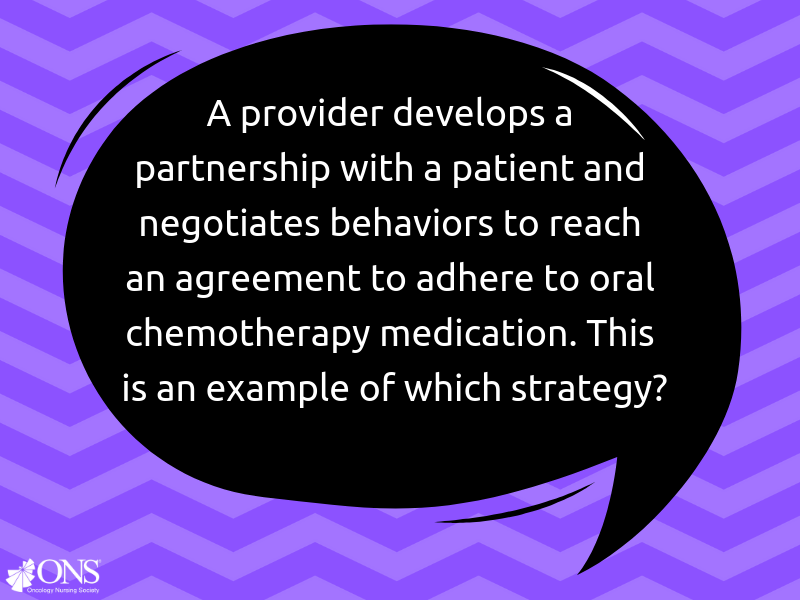Ending HIV Epidemic a Priority for Trump Administration

In a statement during the 2019 State of the Union address, President Trump proposed ending the HIV epidemic by reducing new infections by 75% in the next five years and 90% in the next decade. Department of Health and Human Services (HHS) Secretary Alex Azar hailed Trump’s statement as an important public health initiative.
What Is the APRN’s Role in Managing Patients Receiving Targeted Therapy?

Targeted therapies block the growth of cancer by interfering with specific molecules and may also be referred to as molecularly targeted drugs or precision oncology. Advanced practice RNs (APRNs) must be familiar with the various agents and their side effect profiles, including immunotherapies, hormone therapies, apoptosis inducers, monoclonal antibodies, angiogenesis inhibitors, and signal transduction inhibitors.
- Read more about What Is the APRN’s Role in Managing Patients Receiving Targeted Therapy?
- Add new comment
Hospital-Acquired Conditions Reduced by Nearly 1 Million From 2014–2017

According to an Agency for Healthcare Research and Quality (AHRQ) analysis, the number of hospital-acquired conditions (HACs) reported in the United States dropped by 910,000 (13%) from 2014–2017.
- Read more about Hospital-Acquired Conditions Reduced by Nearly 1 Million From 2014–2017
- Add new comment
How Do You Address Unanticipated Genomic Testing Results?

Genomic testing—identifying variants, like mutations, in tumor cells to inform patient treatment options—occasionally comes with unanticipated results that clinicians have to address with their patients. Clinicians and patients alike are often hopeful that tumor genomic testing will identify a personalized cancer treatment. Indeed, many patients have benefited from being candidates for new targeted therapies identified through genomic testing.
Testing in the Era of Precision Oncology

Every cancer diagnosis is as individualized and unique as the person receiving it. From family history to societal and economic background to a patient’s genetic make-up and composition, cancer affects each person with cancer differently. Initiatives like precision medicine are based in data that suggest that a personalized disease should have its own personalized treatment. As a subset of precision medicine, precision oncology assesses a patient’s unique genetic profile to help align targeted therapies to hit the right cancer subtypes.
Three ONS Members Selected to Inaugural Class of CNSI Fellows

To recognize outstanding contributions and excellence to the field of clinical nurse specialists, the Clinical Nurse Specialist Institute (CNSI) selected 38 nurses to its inaugural class of fellows, including three ONS members Marilyn Chrisman, MS, APRN, GCNS-BC, Patricia Geddie, PhD, CNS, AOCNSA, and Tina Mason, MSN, ARNP, AOCNA, AOCNSA. They will be among the first fellows to use the FCNS credential in practice.
Dems' Budget Fight; Pharma CEOs Face Congress; Patient Financial Struggles

Democrats control the majority of the House of Representatives, and it’s their responsibility to provide and pass a U.S. budget. As with any Congress, it’s always easier said than done. With a larger, more progressive freshman class interested in pushing more environmental, health, and welfare policy issues forward, costs will be a concern.
- Read more about Dems' Budget Fight; Pharma CEOs Face Congress; Patient Financial Struggles
- Add new comment
FDA Approves Trastuzumab and Hyaluronidase-oysk Injection for Subcutaneous Use

On February 28, 2019, the U.S. Food and Drug Administration (FDA) approved a trastuzumab and hyaluronidase-oysk injection, for subcutaneous use (Herceptin Hylecta). The drug is a combination of trastuzumab, a HER2/neu receptor antagonist, and hyaluronidase, an endoglycosidase, for the treatment of HER2‑overexpressing breast cancer.
- Read more about FDA Approves Trastuzumab and Hyaluronidase-oysk Injection for Subcutaneous Use
- Add new comment
Which of the Following Strategies Is an Example of Developing a Provider-Patient Relationship to Negotiate an Oral Adherence Plan?

A provider develops a partnership with a patient and negotiates behaviors to reach an agreement to adhere to oral chemotherapy medication. This is an example of which strategy?
a. Reinforcement
b. Operant conditioning
c. Motivational interviewing
d. Partnership
- Read more about Which of the Following Strategies Is an Example of Developing a Provider-Patient Relationship to Negotiate an Oral Adherence Plan?
- Add new comment
Federal Furlough Forlorn: Cancer Care’s Constraints

On January 25, 2019, President Trump announced a deal to end the longest U.S. government partial shutdown in history—35 days of closed public places and programs, furloughed or unpaid federal employees, and an apprehensive American nation. What was its impact on health policy and, more specifically, cancer care?





